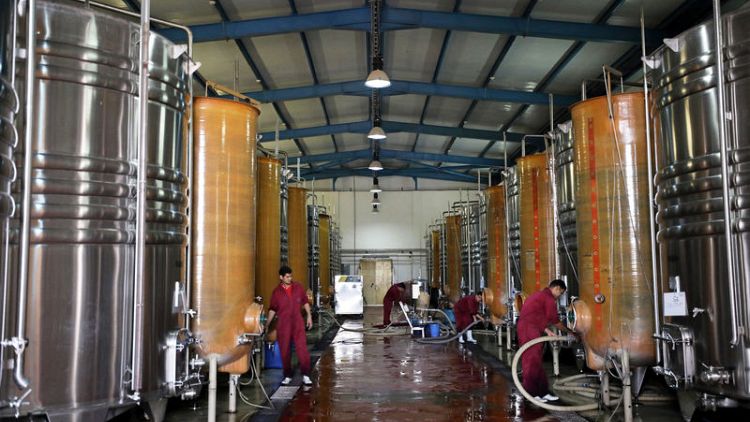By Mostafa Salem
CAIRO (Reuters) - Faced with the parched soil and blistering sun of Egypt's Red Sea area, a small winery is producing an all-Egyptian award-winning wine against all the odds.
The adverse climate would be a disadvantage for any winemaker, but the 'Koroum of the Nile' winery seeks inspiration from ancient times for its present-day success.
Drawings depicting the making of wine illustrated the walls of ancient Egyptian tombs, and the civilisation was known to be avid wine-drinkers.
But production of the drink was halted after Islamic conquests throughout the Arab world, until European migration to Egypt in the 20th century started rebuilding the industry.
Koroum of the Nile was established in 2003, eventually producing almost 4 million bottles a year of organic Egyptian white, red and rosé wine.
The wine has won 14 international medals, including Bronze at the Decanter World Wine Awards in 2012 and the Challenge Millesime Bio for their Jardin du Nil red wine.
"When [tourists] drink wine, they have to drink wine that reflects Egypt, its farms, its sun, and its weather. Everything related to Egypt must be reflected in the glass of wine you are drinking," said winery manager Labib Kallas, who is Lebanese.
Due to the heat, an Egyptian grape typically matures in July, earlier than French fruit which ripens more slowly, affecting the overall taste and quality.
Despite the limitations, the winery produces a wine made solely from the local Banati grape, a first for winemakers in the country.
"What we are doing here is the revival of the Egyptian vineyard," said Rania Mubarak, a marketing representative for the winery. "It is not a welcoming environment because the people are not wine drinkers...we are introducing a culture for the Egyptian."
(Editing by Yousef Saba and Kirsten Donovan)
